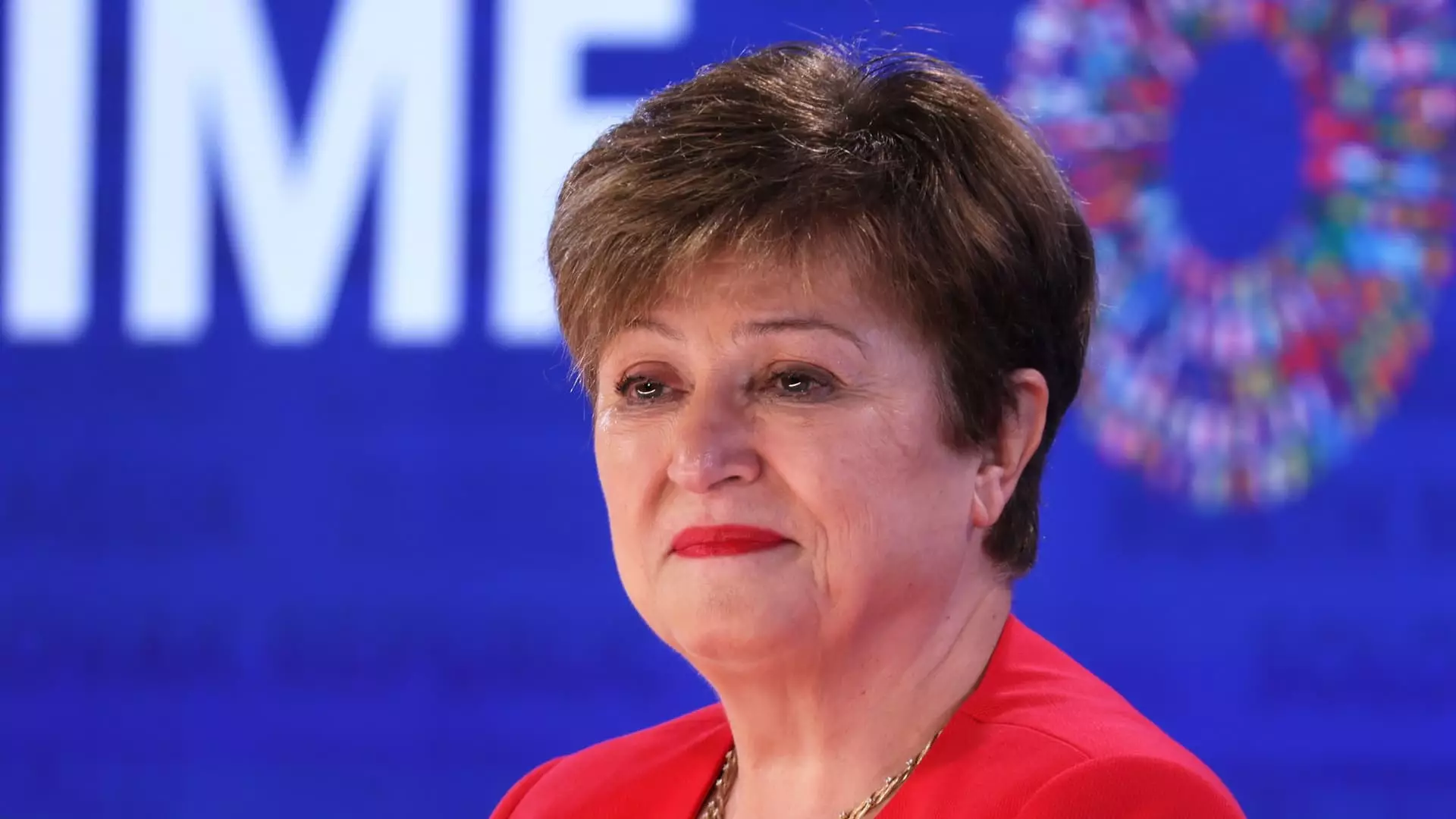The global economic landscape is currently marked by significant challenges, particularly high levels of debt and stagnating growth. In recent discussions, Kristalina Georgieva, the Managing Director of the International Monetary Fund (IMF), highlighted these issues as critical barriers to worldwide economic progress. While there have been strides toward recovery following the economic upheaval caused by the pandemic, Georgieva’s comments serve as a stark reminder that many countries are still grappling with economic factors that impede further advancement.
Georgieva emphasized the pervasive nature of debt as an obstacle that has been exacerbated by what she termed “anemic growth.” With governments becoming increasingly reliant on borrowing, there is a growing concern that the burden of debt servicing will weigh heavily on future economic prospects. The IMF Managing Director’s insistence that “it’s not yet time to celebrate” underscores the reality that while recovery has been witnessed in some economic sectors, the fundamental ailments of high debt and low growth remain pressing concerns that cannot be overlooked. This dual challenge of debt and growth affects not only governments’ capacities to liberate funds for other pressing needs but also hampers public investment and welfare.
Inflation: A Mixed Bag of Success
While some major economies have made headway in combating inflation, Georgieva notes that success has not been universal. The issues surrounding inflation persist in several nations, resulting in heightened discontent among the populace. The disparity in how countries are managing inflation can lead to social unrest, as citizens in struggling economies feel the sting of rising prices impacting their everyday lives. This discrepancy in economic recovery is critical, as it complicates not only domestic stability but also international relations, which are already strained by economic disparities.
International Trade Under Pressure
Georgieva articulates a shift in the role of international trade that has significant implications for global economic growth. She argues that the historical perception of trade as the engine for growth might be outdated, primarily due to rising protectionist policies across major economies. As the U.S. and the European Union impose tariffs on China—justified by claims of unfair trade practices—there are indications that a notable distrust is brewing within the global trade framework. Georgieva highlights how national security concerns, strengthened by geopolitical tensions such as the pandemic’s fallout and the ongoing conflict in Ukraine, prompt nations to prioritize protectionist measures over collaborative economic engagement. This inclination towards retreating into self-protective economic policies raises the stakes for global cooperation and could stifle communal growth.
The ramifications of adopting strict trade measures can have far-reaching consequences. Georgieva warns that retaliatory tariffs could backfire, adversely affecting both the countries that impose them and those that are targeted. With businesses and consumers inevitably bearing the brunt of increased costs, the unintended side effects are something that policymakers must carefully evaluate. It is essential for decision-makers to consider the medium to long-term implications of protectionist measures, rather than yielding to immediate pressures.
Adding another layer of complexity is the influence of rising geopolitical tensions on global financial stability. Georgieva pointed towards the situation in the Middle East as particularly concerning, especially given its potential to disrupt regional economies and the intricate networks that underpin oil and gas markets worldwide. The interconnectedness of today’s economies means that crises in one part of the world can reverberate far beyond their borders.
The challenges highlighted by Kristalina Georgieva manifest a critical juncture for global policymakers. With debt levels inflating, growth underwhelming, and rising protectionism threatening to derail international cooperation, a strategic, well-coordinated response is essential. By addressing underlying issues—such as inflation management, the sustainable growth of economies, and the reassessment of global trade frameworks—nations can work toward forging a more resilient international economic system. The upcoming meetings of finance ministers and central bank governors may prove pivotal in shaping this renewed economic vision, provided stakeholders remain vigilant and committed to long-term solutions.

Leave a Reply